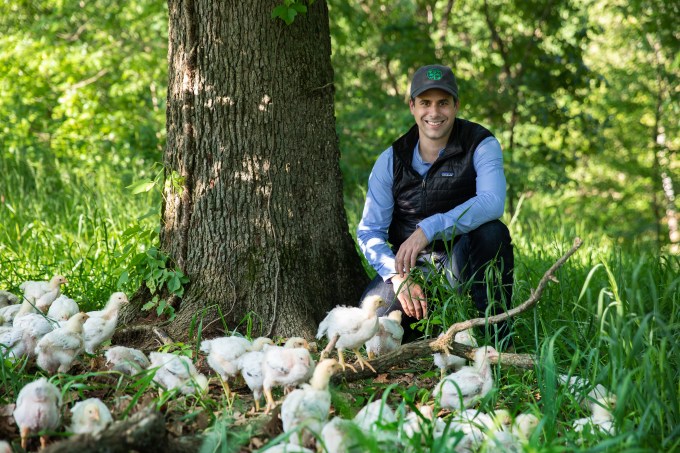Cooks Venture, the agtech company looking to revolutionize the chicken industry, has today announced the close of a $4 million funding round led by Golden West Food Group.
Cooks Venture has been working in stealth for many years, but launched onto the scene in 2018 with a plan to reshape agriculture from the ground up. And the key to that strategy? Chickens.
Cooks Venture geneticists and scientists have spent years isolating genetic lines of chickens to create a new breed, called the Heirloom chicken. Most folks don’t know that, no matter what brand of chicken you buy at the store, chances are that it’s one of two breeds, the Cobb 500 or the Ross 308, which are produced by Cobb and Aviagen respectively.
Both of these breeds of broilers are fast-growing (they’re ready to be processed in about a month) and use a three-phase feed system for growth. This system, and these breeds, are a big reason why animal activist groups express so much concern over the wellbeing of chicken livestock, often explaining that the birds are too young to carry around all the weight they put on so quickly.
Cooks Venture looked to science to solve the problem. The company’s Heirloom chicken can eat a highly diverse diet, and can be raised in about two months. This means that the Heirloom chickens are truly free range, wandering around the farm. It also means that these chickens, with a digestive track that can handle a diverse diet and the ability to exercise, are actually healthier to eat and taste better than your average Cobb 500 or Ross 308, according to the company.

But the chickens themselves are only part of the solution. A byproduct of the proliferation of these fast-growing chickens produced by Cobb and Aviagen is that they have to eat, and their diet is very specific. That means that farmers must produce a great deal of one or two crops to feed the millions of chickens out there. The result is that our agricultural land is not being used in an efficient or eco-friendly way.
In fact, Cooks Venture founder Matt Wadiak says that 97 percent of our crop production in the United States is used for ethanol or animal feed, which indexes towards corn and soy. Many farmers would love to implement regenerative agricultural practices, a big part of which includes creating a biodiverse ecosystem with many different crops, but who would they sell the extra low-demand crops to?
The answer now can be Cooks Venture. With strong digestive systems, Cooks Venture chickens can eat a diet that comes from a more biodiverse farm. Moreover, when Cooks Venture is ready to expand globally, the chickens are able to eat crops local to the ecosystems of emerging nations, such as yucca and quinoa.
Cooks Venture has its own farm, and works with farm partners to set up regenerative agricultural practices around producing Heirloom chicken feed. Cooks also does its own processing at its own plant.
Golden West Food Group is a manufacturer of meat products and value-add food products like marinated chicken, such as Jack Daniels pulled pork. It’s worth noting that GWFG is not a competitor to Cooks Venture, as it produces no meat products whatsoever, but rather an important distribution partner for the brand.
Through the partnership with GWFG, Cooks can start to ramp up commercialization of its chickens, which are currently sold through some retailers, on the Cooks website, and on HelloFresh.
As part of the announcement, Cooks Venture is also bringing on Ankur Agrawal as Chief Financial Officer. Wadiak, a cofounder at Blue Apron, worked with Agrawal back in the Blue Apron days and says that his understanding of agricultural finance is top of the line.
Comments
Post a Comment